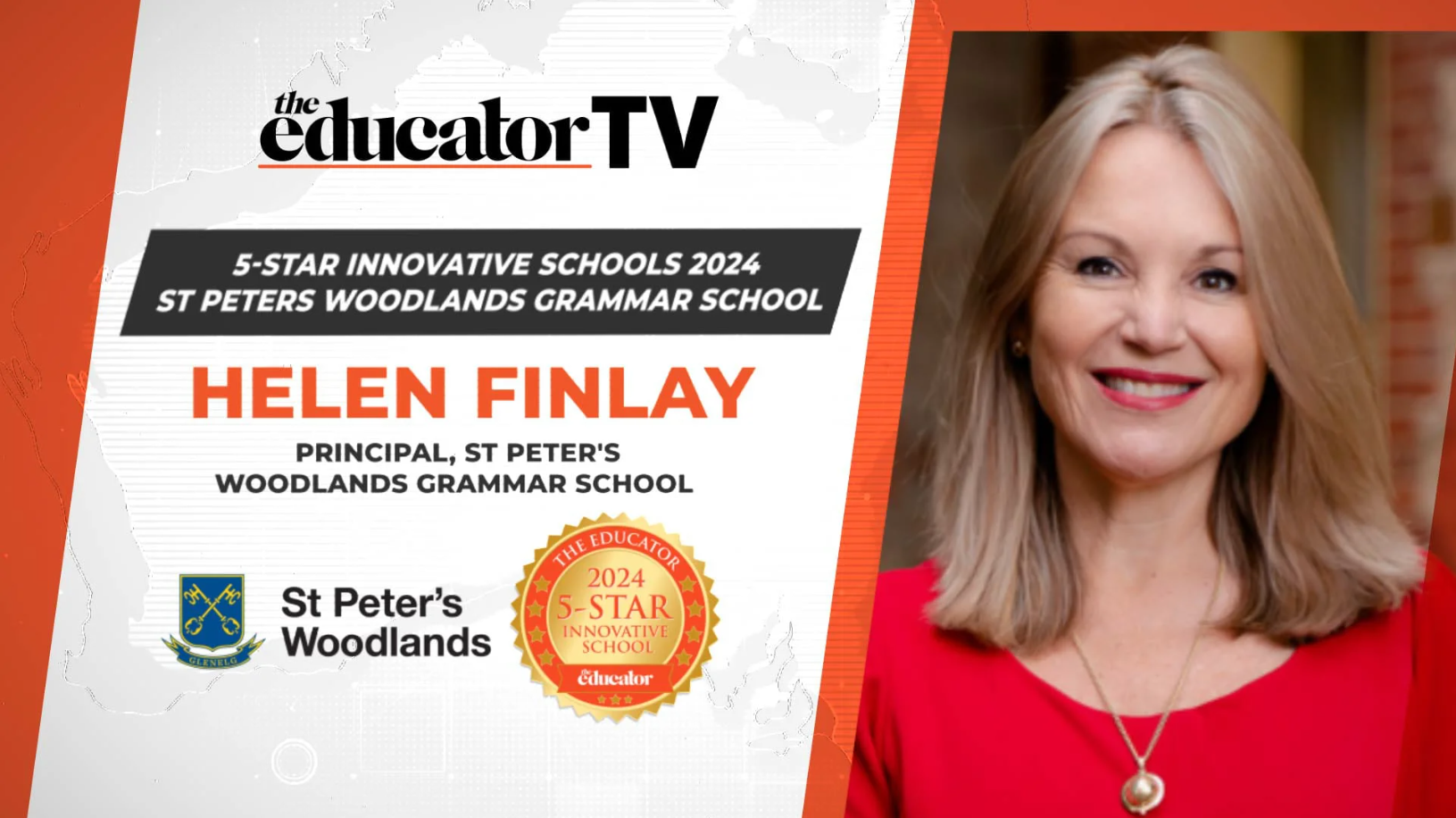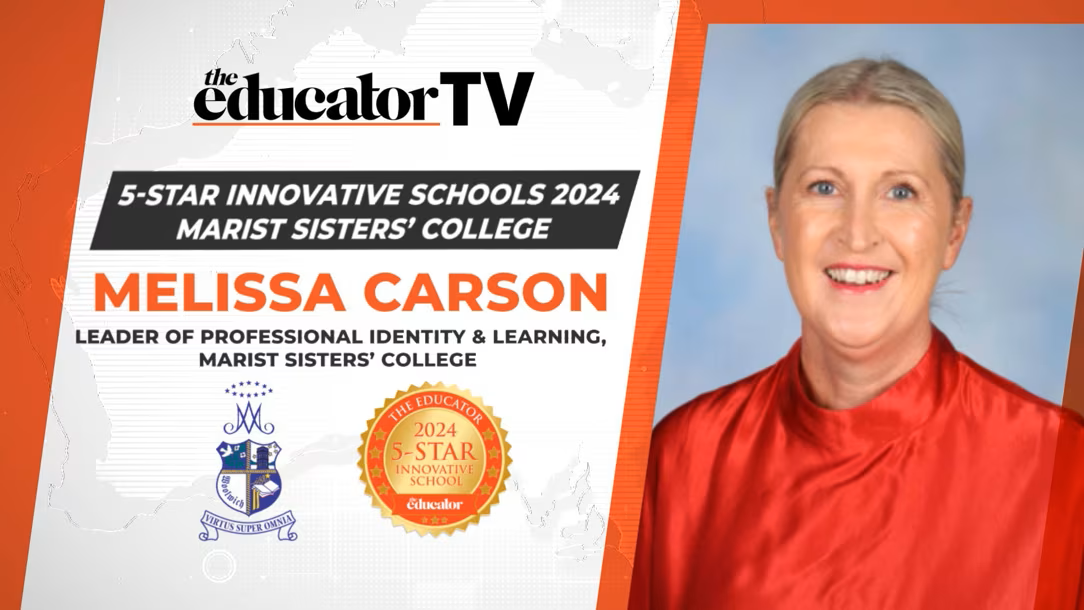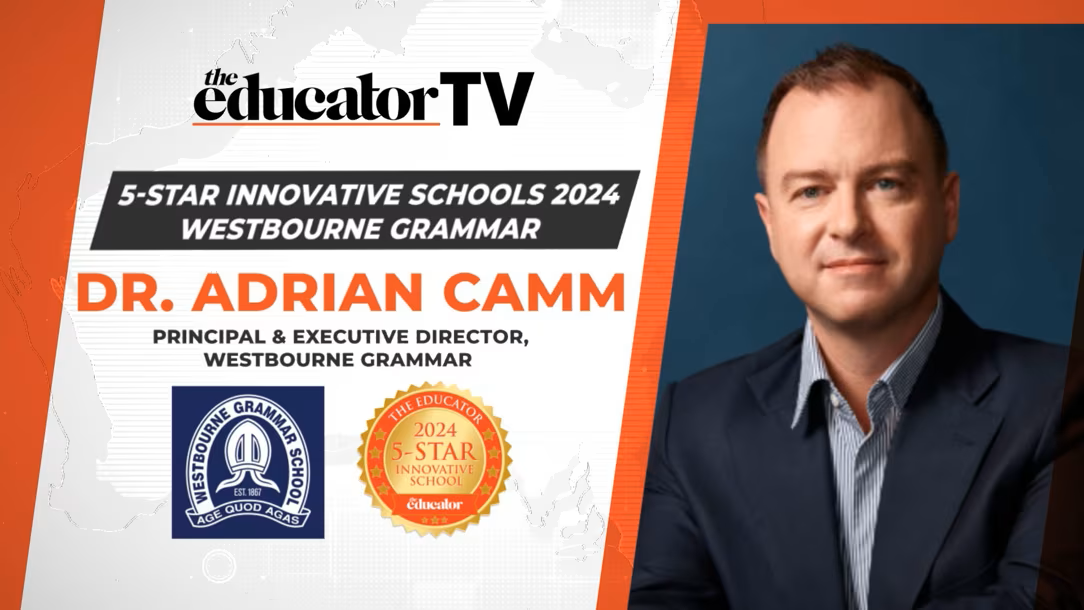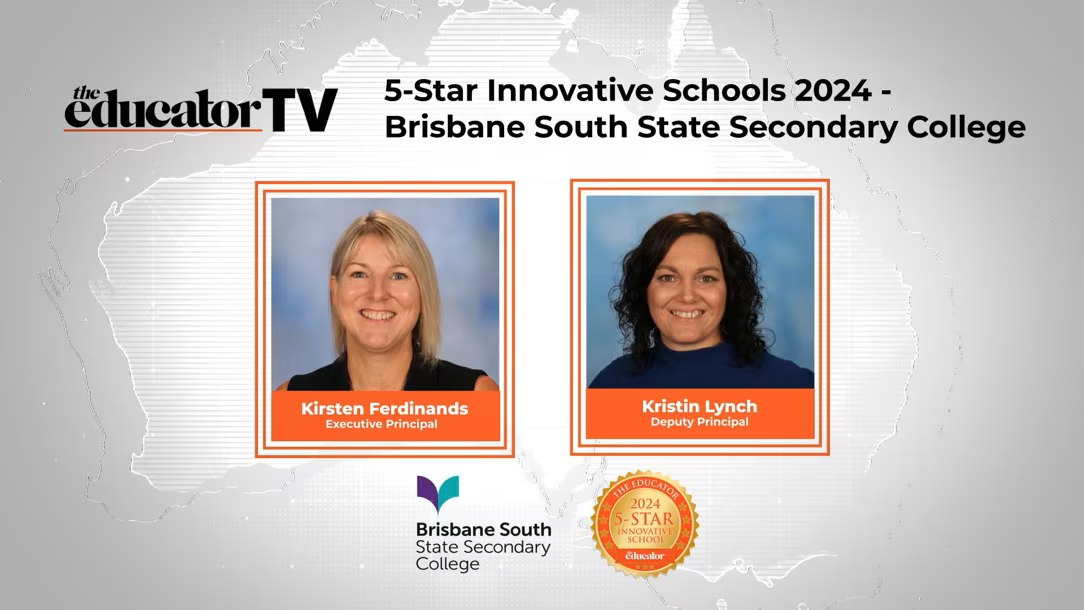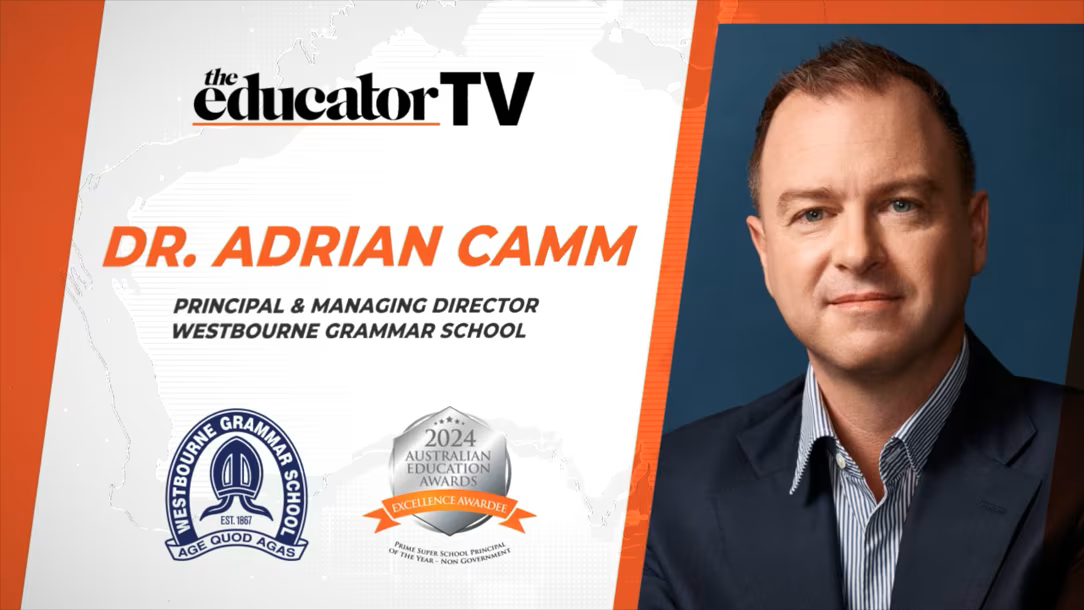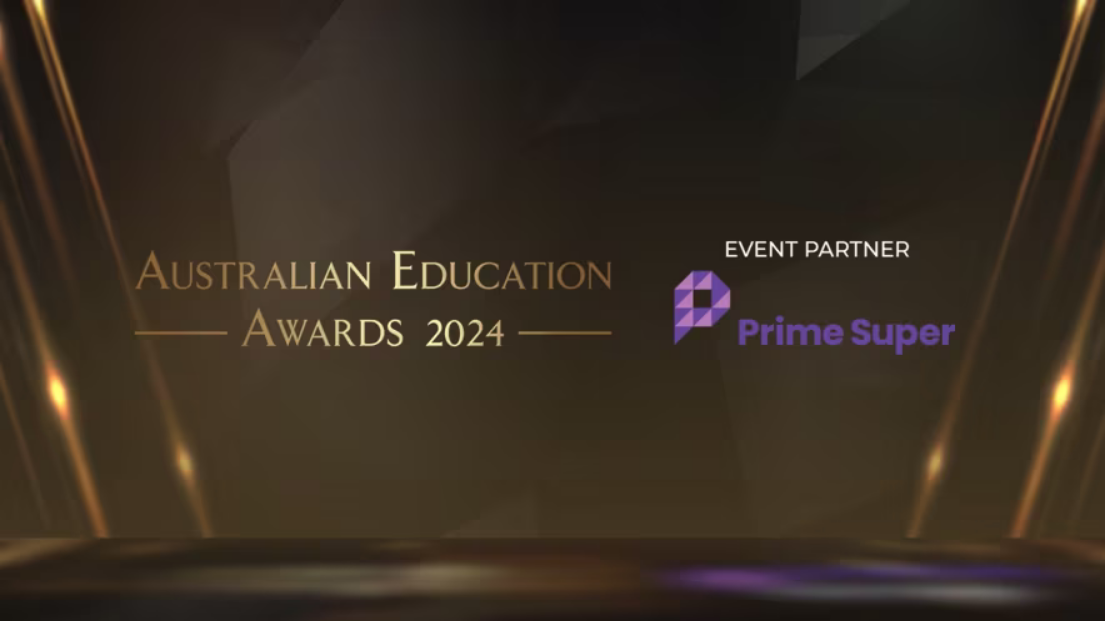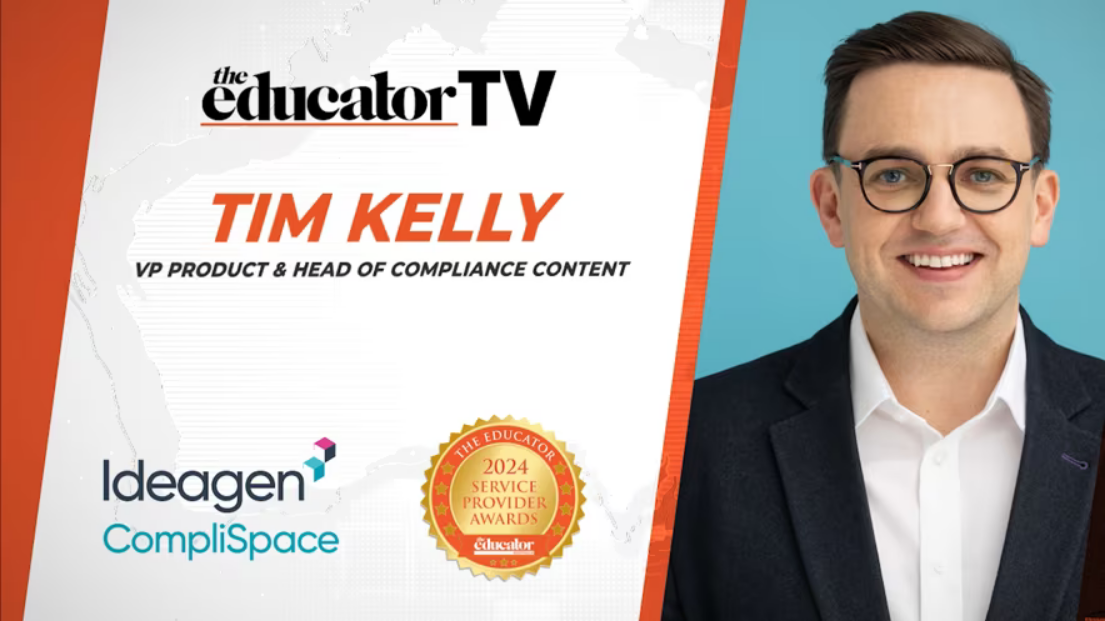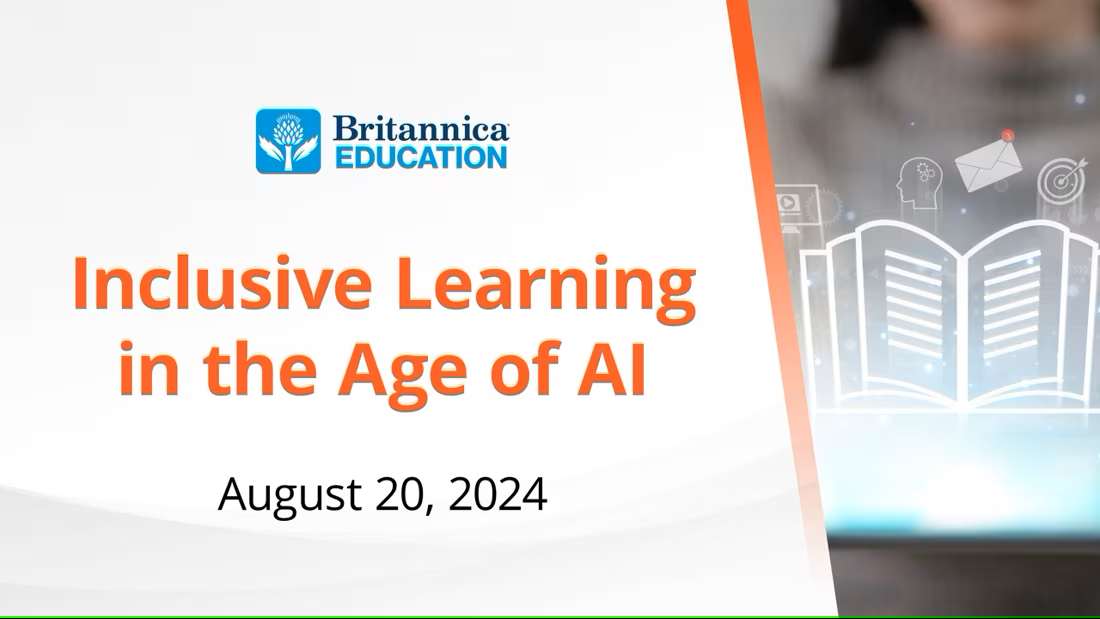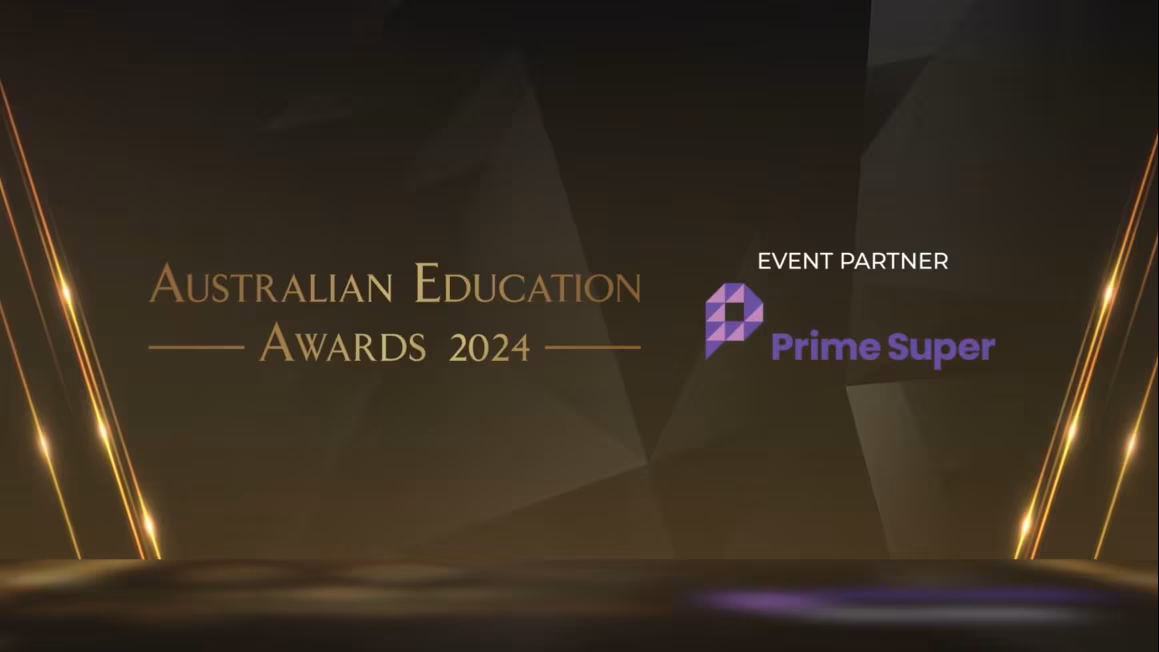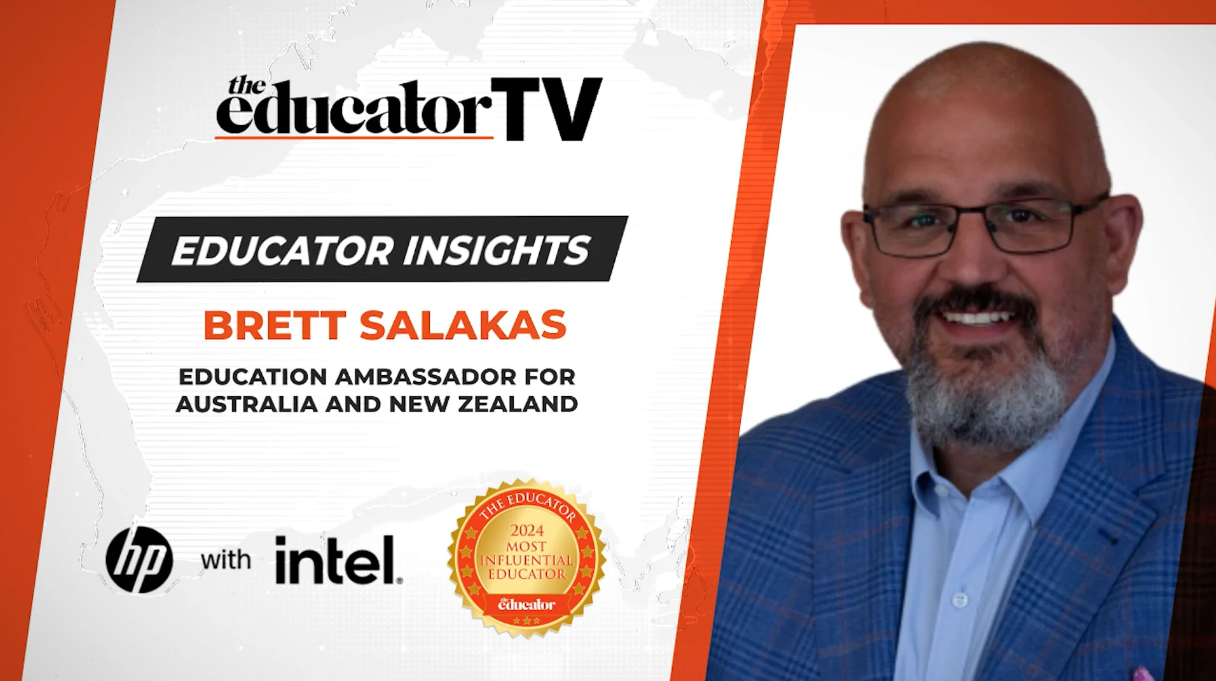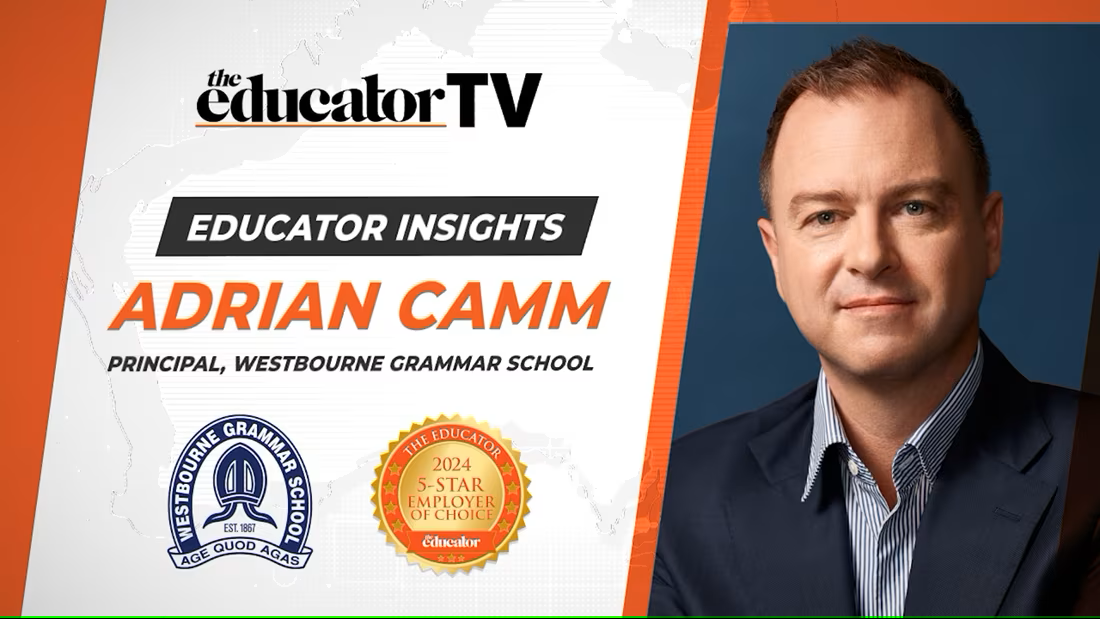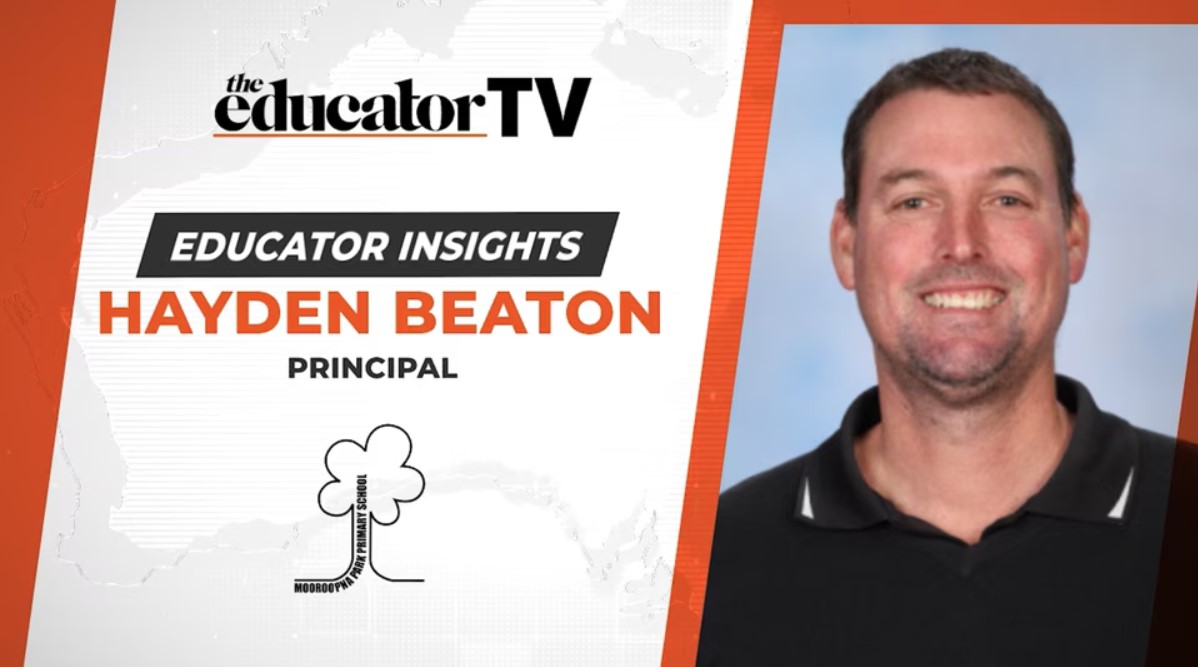Fostering courage and agency in the next generation
In this interview, Karen Yager tells The Educator how she is creating courageous, agentic citizens through a curriculum that prioritises real-world application and student empowerment.
To view full transcript, please click here
Kylie Speer [00:00:09] Hello and welcome to The Educator TV. I'm Kylie Speer. Thank you for joining us for the latest installment of Educator Insights, our inspirational education leadership series. Joining me today is Karen Yager, Principal at Hills Grammar. Karen has over 25 years experience in education in the public and private sectors and over 18 years in leadership, she has provided critical advice to the New South Wales Education Standards Authority on Syllabus implementation and development. And as a Life Member and Vice President of the English Teachers Association, New South Wales. Karen is also the 2022 President of the Professional Teachers Council, New South Wales, Vice President of the Australian Professional Teachers Association, and the 2023 President elect of the Australian Association for the teaching of English. Welcome to you, Karen. And thank you so much for joining us.
Karen Yager [00:01:11] Thank you so much, Kylie. Thank you for the privilege of being interviewed.
Kylie Speer [00:01:15] Well, firstly, Karen, what are you most passionate about in your role and career as principal?
Karen Yager [00:01:22] I don't think it's really changed from when I first started teaching. And I think it's for most teachers, as well, as leaders, I'm passionate about young people are having the best opportunity to learn the quality teachers to be engaged, to be inspired, to want to learn deeper and go further and know more. Because I see so many children just obviously don't feel that they just make it in education. And I want every child to walk out of school after 13 years, feeling that it was worth it. And knowing they've had a great time. But more than that enter the world with courage and the passion to be able to make a difference in this world. And I think education has the power to do that. Sometimes we've let students down. And I think it's finding and tapping into the passions of our students, giving them purpose, just the same as we need that purpose and that passion to make that difference in the world. And I think then we can realize the pathway declaration, which is about young Australians being courageous, and agentic citizens. So that's what I'd really love to see for all young people.
Kylie Speer [00:02:28] There's so much transformation happening across the education landscape in Australia right now, what changes are you most affected by?
Karen Yager [00:02:38] I think the biggest one at the moment that's actually worrying governments and actually worrying every single school and it is a big transformation. It's the teacher shortage. It's the one that you know, as a grandmother of 12 grandchildren, I really do worry about them, and are they going to have the, you know, the best people in front of them. So for me, as a leader, I am really passionate about ensuring teacher wellbeing, about ensuring that we listen to their voices, and we give them that sense of mastery purpose, you know that the autonomy that teachers need, I know that the national teacher workforce review that's just come out, that's one of the major problems that they're talking about is that we're not only seeing teachers leaving, and it's not just teachers in the first five years anymore. But we're also seeing young people not choosing teaching as a career. And quite frankly, I have loved every moment of being a teacher, and a leader. And I have two daughters who are teachers. So I think it is the best job you'll ever get to do. And you can make the greatest difference. So that's the first worry. And so I think for me, that means I need to work closely with the universities. And the AIS New South Wales secure university students almost in their first year. Because I think the problem is young people need to who want to become teachers need to experience it from really their first year on because it's too late in their fourth year when I lectured for 12 years at UNSW, they might not like teaching but if they're doing it right from the beginning, and the other thing is I'm encouraging my students at my school become teachers. So I'm talking about paying them to do their cert for in year 11 or 12, or the year 11, probably. And then we will actually employ them one day a week at our school or their university and get them you know, as educators and get them used to being teachers. So that's the big one that's not just in this country or my school that's worldwide now. The second one is that's really concerning politicians and I met with Minister Claire in Canberra a couple of weeks ago is the Australian performance of our students, both in external exams such as Pacer in Teams with mathematics in particular, but also in that plan in terms of writing and reading. And we've had the better and fairer Education System Review was just released this year where it talked about some of the recommendations. There's a couple of, I think, complete misunderstandings in terms of this. And what does it mean for transformation in schools is that they are talking a lot about going back to basics. And that's not the answer. One of the things I think we need to look at is the fact that PISA and mathematics for a 15 year old is about the application of mathematics. So it's working mathematically, which we hardly do in this country without curriculum. So we don't do what else Singapore does, or British Columbia, or Finland. And the other one is NAPLAN, for example, right? It's really hard to mark eight categories in the short time they're expected. So I do worry about the validity of the writing tests. But what it does mean for me as a leader is that I need to ensure that every single young person at my school is explicitly indirectly taught that they absolutely have great literacy, numeracy skills, that they are really good at technology and innovation. And they're not scared of it, that they have quality teachers. And what I really think we need to do if we're going to compete with the top three countries like British Columbia, Finland and Singapore, is that we need to introduce as opposed traditional direct explicit with inquiry learning. So they are learning to apply the learning and understanding it. So there's so many things that we could do in those two areas. And I haven't even touched on the third, which is technology. But I think we'll cover that when we get further down the track.
Kylie Speer [00:06:33] Back on the topic of well being, how does Hills Grammar approach this all important area and diversity and inclusion practices with your students?
Karen Yager [00:06:45] The first thing comes down to exactly what I talked about for teachers when I said Deci and Ryan's self determination theory, when students it's think number one about relatedness. When a child feels they belong to a school and call it tribalism, call it what you will connect it, they can relate to it, then they're actually their well being is actually positively impacted. The second one is mastery. So when a child feels they can achieve, they can learn they can gain those skills. So this means for children, for example, who need adjustments, or children who have literacy and numeracy challenges, that or children with additional needs that we need to differentiate, we need to support them, we really need to help them because they have as much right to access and education as every single child. So that's something that I think we need to do if you to talk about well being. And the third one is autonomy. And what this means to me for young people is agency and voice. I think education is done to young people, not with them. And I really am passionate about young people having a say. So couple of things I've done with the team. I've got a great executive team and teaching team. I've got a student wellbeing team, that's 59 students from year 40, hit 12, they actually developed a mobile phone policy. And then they said, well, if you're going to ban phones and mobile phones at lunchtime, then you need chess games, and you need all sorts of things and all playground equipment. So we're actually listening. They also are looking at kindness. And they're also looking at vaping. And what do we need to do as a school to address these issues. So they are I give five students in that team. She is amazing. She actually will stand up and tell us what we're doing wrong. I give them research papers that you would normally give to university students to read. And over the holidays, they're reading about vaping. This is how dedicated I have a Hill's passport team. So we do micro credentialing from early childhood through to Year 12 because a child has more than a grade. And so the children again, well being get to know that what they do outside of school like scouts or working in McDonald's, or helping out mowing neighbor's lawns is just as important as what they do at school. And so they get recognized for it. And again, this brings back that sense of agency and purpose. And that connectedness, we've also got a master planning team. So they're planning our next lot of major projects in the school, our strategic planning team that actually picked up what we have missed as a council and executive and said you need to fix this is you know, we need if our school is going to be a great place. So to me, all of this is about the children having a voice of their sustainability team who are looking after the platypus and Caddo Creek, who are doing recycling for us and telling teachers what we need to do better. They, that all comes to this notion of well being but also in terms of diversity and inclusion. You know that making sure that every child is valued and cared for and, and it's not easy in every school, but we're trying really hard the other thing we do social emotional learning, which came out of Linda Darling-Hammond's work at Stanford, that starts in the classroom. So you know, just tacking on a well being program isn't going to make a difference. But if you're actually doing it in the classroom, from that moment on, letting kids realize that failing is okay, you actually get greater success when you do fall over and you pick yourself up. So trying to make them more resilient and self regulated, and empowered is what I'm really passionate about.
Kylie Speer [00:10:29] Karen, those initiatives all sound incredible and so empowering. Thank you for sharing them. So let's move on to technology, AI is undoubtedly here to stay yet certainly presents uncharted and complex waters to navigate. What are your thoughts on how to best work with this technology going forward.
Karen Yager [00:10:49] You can't ignore it, you have to embrace it. And the best ways to educate the same as I just talked about mobile phones, prohibition doesn't work. You've got to educate young people. So we started November last year, with my staff. So I just EDID data them with papers. And the latest and I played with some of the things like site is CIT II, which is looking at result, you know, references I use of my PhD. I talked even did a stage five Macbeth unit to show them how you could use it as a framework, but then make it your own and make it 100 times better, because AI can be a little bit predictable. For young people, we've got an AI team, a tech group, and they are developing an ethics policy based on the United Nations ethics policy, and also the Australian framework that's come out, that's going to be released for schools, I think, probably in the next month or so. So it's getting that and they're actually playing in a whole lot of spaces. So they've been using mainly being AI rather than ChatGPT. But the other one that I think is most exciting is that my teachers have been working on assessment because we've just got to rethink the way we assess children. As we know, AI is not about copyright, because it's not a human being. So you can't really talk about plagiarism. And it's hard to pick it up because children know now how to actually cheat that one, too. So what do we do? We change the assessment to do things like assessing process rather than product. We just had a recent Romeo and Juliet essay where the kids were allowed to use ChatGPT for they had to reflect on how did it contribute? What how did it detract from their own learning? And what would they do next? When using that, it's we've just got to embrace it. I've also appointed some innovation champions with teachers. And they're just experimenting in a whole lot of different ways. And I'm really excited because Microsoft are about to release copilot, which is going to take us another step further and it will put some parameters around, you know, where kids can go with chat, but I think it's exciting.
Kylie Speer [00:12:59] There's also Bard too, which might be very apt for Shakespeare. With there always being so much on your plate, How can teachers and principals be best supported by relevant stakeholders to ensure you're adequately equipped to do your job?
Karen Yager [00:13:17] I think one of the first things for me if I go to government, and I'm an independent school, but I've spent, as you said over 20 years in public schools, I think of what we didn't have, and I won't name the school, but we used to do the breakfast program for the kids over money. There's no air conditioning and yet a gap around 40 degrees summer, I'd love to see more money put into the public schools, to be honest, to allow teachers do great things because environment does make a difference for kids and they have sight you know, just as much right as every other child you talk about inclusivity, then that's really an equity are really important to me. If I talk about in New South Wales, our authority is NESA and it kind of controls teacher accreditation and curriculum implementation is actually doing a really good job in making it simpler and less admin heavy. So I've been really very pleased with that. And also our new curriculum, the Australian Curriculum for every other state, and then in New South Wales, we kind of do our own. The reduction in content, because if you reduce some of the content, you're trusting teachers to do their magic in the classroom. And I went to British Columbia with Robert Allen, who wrote their curriculum and when I look at what they do over there, it's mainly conceptual, which is what the Masters review had recommended. And I think that's exciting because you can get some really great learning happening, the media, I just wish they valued teachers a bit more and stop giving us such a hard time. I mean, they love putting up you know, the elite school is independent school that and they forget that whether it's public, catholic it's independent, then it's all about children. And so when they, you know, do this, they're actually really impacting on children and their learning. So just being a little bit more supportive, and in terms of parents, trust us, empower us to care for your children and know that not every child's gonna get an A, and that's okay. Because they can go on when they leave school to be, you know, the Bill Gates of this world. You know, we need them to trust us and, and let us do our job, and also make their own children accountable. I'm really privileged at my school got great parents, and I've got a really great scoreboard. But I think when you look at the disruption of Australian schools Senate inquiry, there are some problems in Australian schools, we know that. So it is a case of parents making, I think making their own children accountable and being accountable themselves too.
Kylie Speer [00:15:34] And finally, Karen, what's your number one recommendation or request right now to affect positive change in education?
Karen Yager [00:16:05] It has to happen now, we can't talk about 10 years from now or five years from now because it's about the children in our classrooms now who are coming in. So to me the biggest change, and I saw this happening in America in Columbus, Ohio, and I came back here with a mission to make a difference. It's pull the walls down of schools, and the universities and industry in schools work closely together. It's happening in pockets, but it's not universal. So for example, UTS here, the University Technology in Sydney are going to allow year nine and 10 students in 2024, to do micro credits that count towards their first year of university. They will do this year as a pilot creative intelligences. And they'll work alongside climate scientists, engineers from the university to solve how our school can reach net zero by 2035. You know, real authentic problems. I've reached out to VW Australia about apprenticeships and mechanics for our young people. The more we can get industry, universities working with schools, the greater education our children are going to get can't just happen in a classroom. So that's the biggest thing for me. That would be the most exciting I'm seeing it happening, but it's not happening fast enough for me.
Kylie Speer [00:17:22] That's fabulous advice. Well, thank you so much, once again for your time today, Karen. Teaching is such a noble profession and it was lovely speaking with you.
Karen Yager [00:17:33] Thank you so much. It's been a delight.
Kylie Speer [00:17:36] And thank you, of course, to our viewers for watching the latest episode of Educator Insights. We look forward to seeing you again soon.



